SEIRI News
SEIRI welcomes Sammy Nyarko
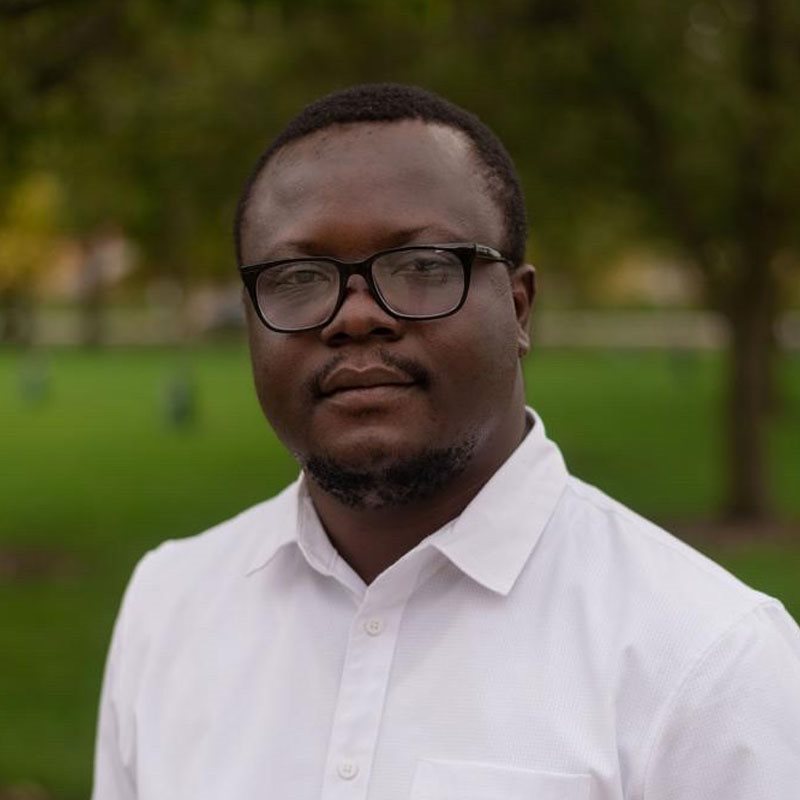
Samuel C. Nyarko started on 9/27 as a Postdoc researcher with SEIRI. His research interests include collaborative and experiential learning. Dr. Nyarkos' expertise include mixed method research and he will work on STEM education research, program evaluation, and assessment. Dr. Nyarko received his PhD in Geoscience Education from Western Michigan University.
Save the Date
Science education in the post-constructivist era: Bruno Latour and beyond
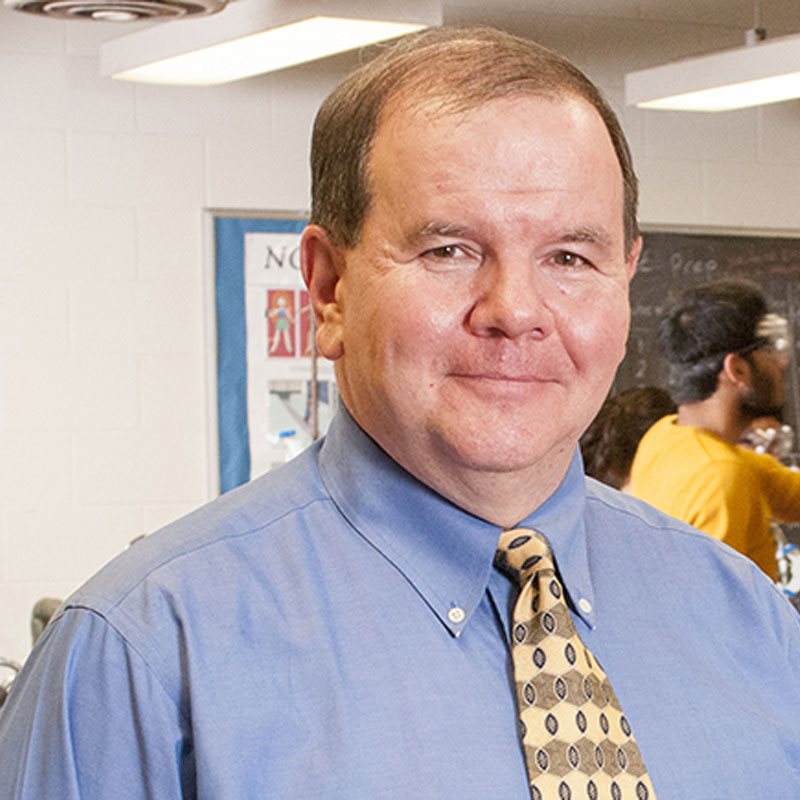
Donald Wink, PhD, Professor, Chemistry, University of Illinois, Chicago
Title: Science education in the post-constructivist era: Bruno Latour and beyond
Date: Thursday, October 28, 2021
Time and Place: 9:00 am - 10:00, UL 0130, Lilly auditorium
Click here to register
SEIRI Seed Grant
The STEM Education Innovation and Research Institute (SEIRI) at Indiana University Purdue University Indianapolis (IUPUI) is pleased to announce the 2021 SEIRI Seed Grant (SSG) competition. The goal of this competition is to facilitate and support STEM education innovation and research at IUPUI. Specifically, this opportunity provides faculty members in science, technology, engineering, and mathematics (STEM) departments with funding to develop, implement, and evaluate the impact of pedagogical innovations across multiple IUPUI STEM courses.
The deadline to apply for the SEIRI Seed Grant is 11:59 pm, Monday, November 1, 2021. If you have any questions, please reach out to Danka Maric at ude[dot]ui[at]ciramd. Proposals submitted after the deadline will be returned without review.
Click here for RFP Guidelines
Logic Models Workshop
SEIRI is offering a workshop for all faculty interested in learning about the development of Logic Models. Anyone applying for federal funding from NSF under the Improving Undergraduate STEM Education (IUSE) track, for a SEIRI Seed Grant, or for a CEG offered by CTL, are especially encouraged to attend. This will be hosted by SEIRI and presented by Tony Chase, Assistant Professor, Occupational Therapy and Danka Maric, Research Associate, SEIRI. For more information, email ude[dot]ui[at]ciramd.
The workshop will be held October 13, 2021, 1:00-2:30 pm, via zoom.
Click here for more information and registration
Congratulations to Grant Recipients
SEIRI congratulates the following faculty members who have extended their SSG work by receiving external funding
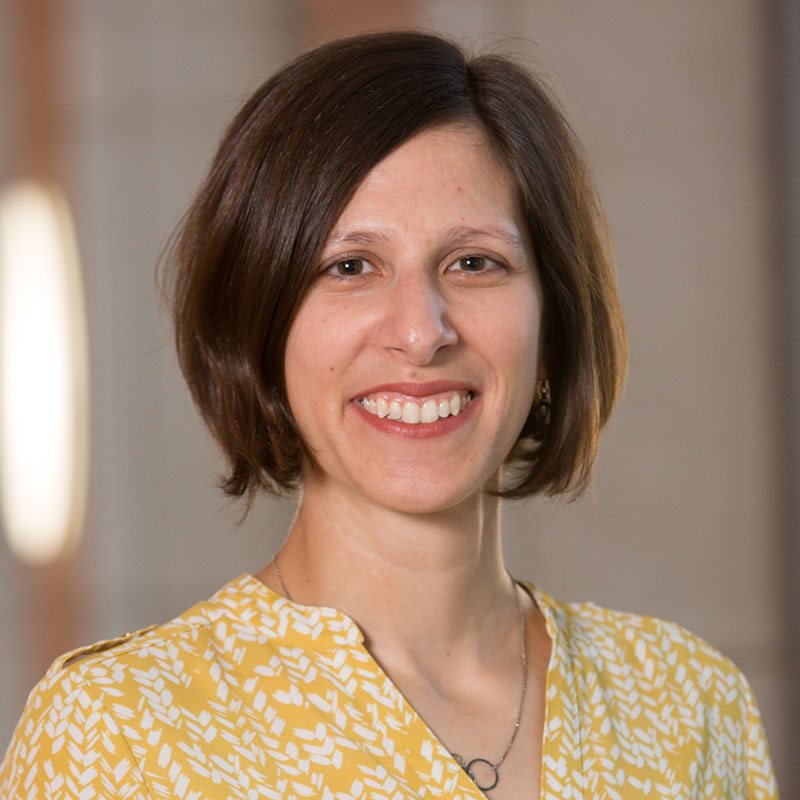
Dr. Sharon Miller
Title: A Clinical Immersion to Train Biomedical Engineers to Identify Indiana's Urban Health Needs.
Our proposed (IN)SCRIBE Program will train biomedical engineers to be adept at translating urban, healthcare-related technologies. The long-term objective of the proposed project is to develop a model program for urban universities to train biomedical engineers who will contribute to solutions to society's most challenging health care problems. Specific Aim 1 is to implement the (IN)SCRIBE Program at Indiana University–Purdue University Indianapolis (IUPUI), in collaboration with the IU School of Medicine. We will immerse undergraduate BME students in diverse clinical settings, develop student skills and self-efficacy in needs identification and clinically-relevant design, and create student awareness of socioeconomic disparities in healthcare. Specific Aim 2 is to determine how the (IN)SCRIBE Program affects undergraduate BME students. We will identify how student teams articulate consideration of socioeconomic factors in design solutions and document how student teams pursue design to meet urban health needs beyond the Program. Successful achievement of the long-term objective and specific aims will result in improved training for biomedical engineers and better health for all residents in both urban and non-urban areas.
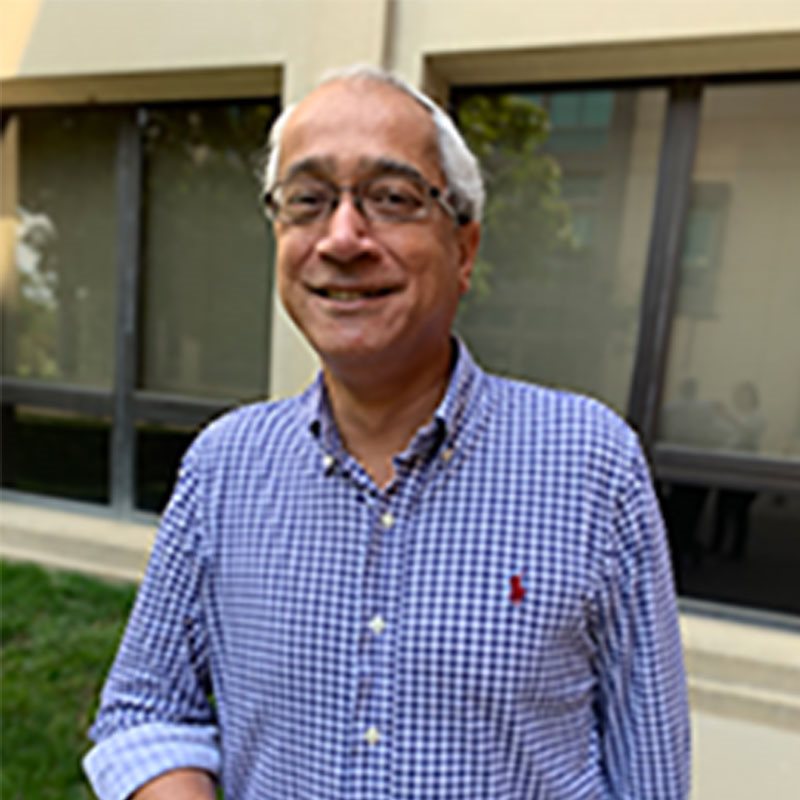
Dr. Gautam Vemuri
Title: Normalizing Computational Methods in the Undergraduate Physics Curriculum
This project aims to serve the national interest by strengthening undergraduate students' use of computational skills to solve problems. The traditional physics curriculum trains students to think of using mathematical methods as the normal way to solve physics problems. However, the proliferation of and advances in computer hardware and software suggest that students who are trained to use computers to solve problems may be able to tackle more difficult and sophisticated problems than they can with mathematical methods alone. Ideally, students should think of mathematical and computational methods as complementary and make judicious use of both to solve problems. Since the traditional physics curriculum already emphasizes mathematical methods, the goal of this project is to train physics majors to use computers to solve physics problems and to think of computational problem-solving as a normal way to approach problems, in the same way students have traditionally been trained to view mathematical methods. The field of physics should benefit from having students who see computation as a natural way to solve problems, because these students will be confident about tackling a wider range of problems. In addition, students who are trained to use computers to solve scientific problems bring additional tools and understanding to bear on tasks. As a result, they should find themselves well-prepared for employment in business and industry.
And congratulations to other STEM education grant recipients
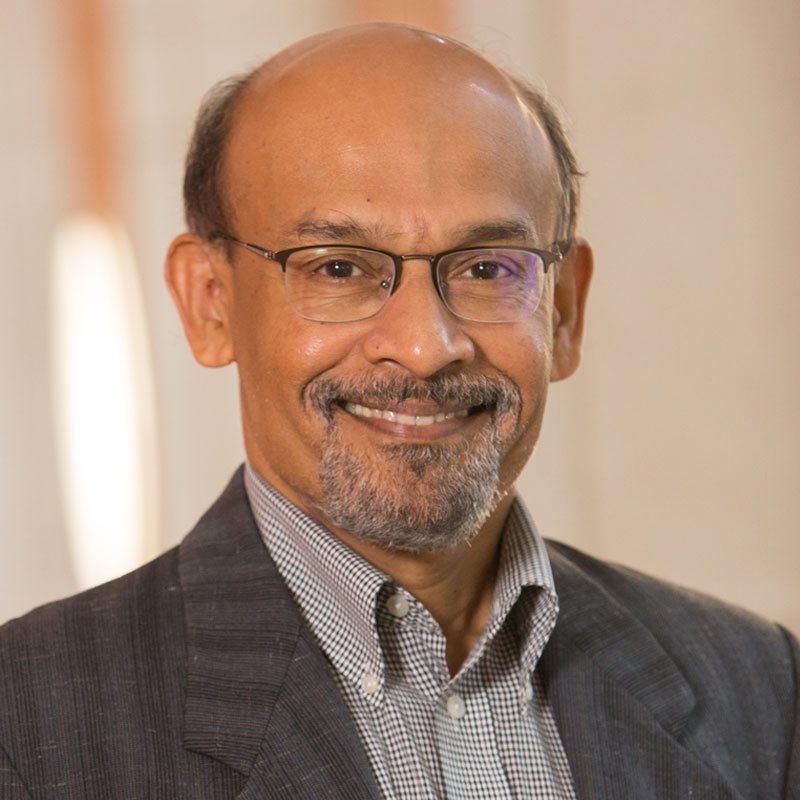
Dr. Mohamed Razi Nalim
IUPUI is among 12 universities and nonprofit organizations nationally receiving grants in the current year, with a three-year $750,000 award received by the Purdue School of Engineering and Technology for its proposal: Navy Engineering Innovation and Leadership Training Program for Diverse STEM Peer Leadership.
Along with Razi Nalim, who is a professor of mechanical and energy engineering, the IUPUI team is composed of Lauren Christopher, associate professor of electrical and computer engineering; Christine Krull, coordinator of academic programs and instructional design in organizational leadership; Sharon Miller, clinical associate professor of biomedical engineering; Eric Adams, senior lecturer of mechanical and energy engineering; and Marsha Baker, assistant dean for recruitment, retention and student services. Danka Maric will serve as an evaluator from IUPUI's STEM Education Innovation & Research Institute. Faculty members will train students and conduct and publish research on their development of skills in leadership, innovation and discovery.
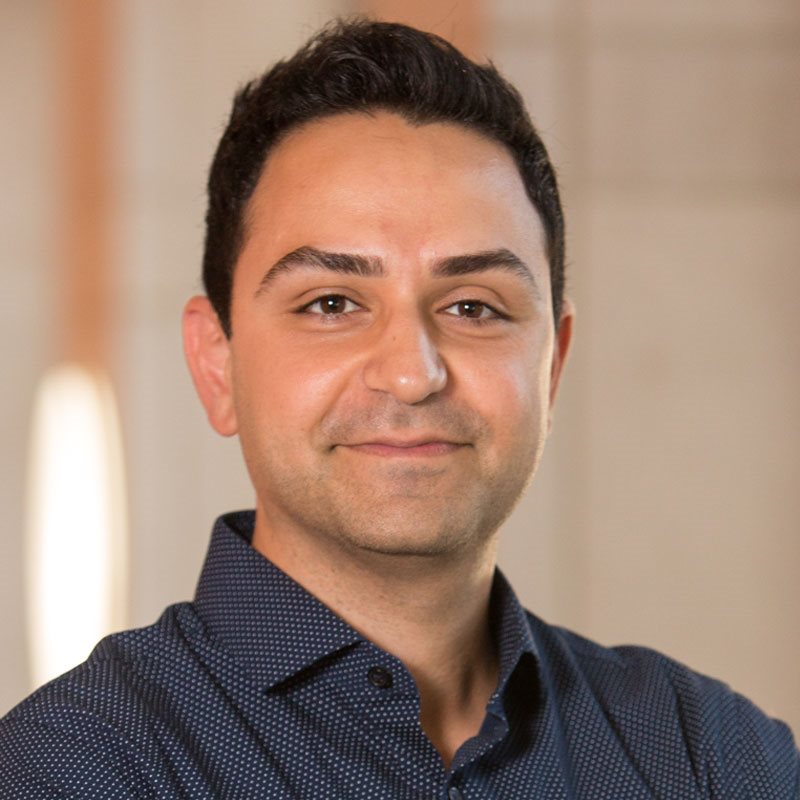
Dr. Babak Anasori
Title: Deblurring our View of Atomic Arrangements in Complex Materials for Advanced Technologies
In partnership with faculty from Drexel University and University of Pennsylvania, Babak Anasori was awarded an NSF-Future Manufacturing grant. This project is focused on the study, development, deployment, and testing of new cyber nanomanufacturing solutions. Educational and workforce development activities will also be embedded across the grant activities.
As we try and find new technologies to solve some of mankind's toughest challenges such as abundant sustainable energy, environmental remediation, and health, we are increasingly seeking more and more complex materials. We already have devices that turn sunlight into electricity and use sunlight to split water into precious hydrogen fuel, but issues such as device efficiency and cost mean that the current technologies cannot be taken to the vast scale needed for our modern needs. This puzzle may be solved by the use of advanced materials that perform their tasks - energy conversion, cancer cell killer, or whatever it may be - with greater efficiency. This is inevitably leading us towards more complicated materials that consist of many different chemical elements and have engineered structures on multiple different length-scales from the atomic to the nano- and meso-scales all the way to macroscopic scales. The problem is that, because of their complexity, it becomes very difficult to even characterize these materials when we have made them, let alone design and engineer them at the nanoscale. Our usual tools based on the scattering of x-rays by crystals stop working for such nanoscale structures. The problem is not that we lack powerful enough x-ray beams. The problem is that the x-ray scattering signal from these complicated materials doesn't contain enough information to allow us to find a unique structure solution. It is as if we are looking at complex patterns of atomic arrangements through blurry, steamed up glasses. This project will bring greater clarity to this situation by marrying together advances in applied mathematics from diverse areas such as image recognition, information theory and machine learning, which are having transformative impacts in commerce, law enforcement and so on, and applying them to the problem of recognizing atomic arrangements in materials of the highest complexity.
Celebrating 30 Years of LSAMP
NSF LSAMP Principal Investigators and Project Directors Meeting 2021
Kim Nguyen, Director for Statewide and Regional Collaborations, attended the LSAMP PI & PD meeting in Chicago. The NSF LSAMP Principal Investigators/Project Directors Meeting, held October 1-2, 2021, focused on LSAMP’s thirty years of empowering diverse STEM innovators. The event featured updates on grant award management, data reporting, and funding opportunities as well as inspirational keynotes and plenary sessions on a variety of topics. Dr. Kim Nguyen served as moderator for plenary session titled Sustainability, Institutionalization, and Partnership Building presented by Dr. Benjamin Flores.
Assessment Institute
Recommended Reading
- Batten, J.S. and Ross, M.S., 2021, July. A Systematic Review of Social Constructivist Pedagogies in Computing and their Effects on Broadening Participation for Women in Undergraduate Computing. In 2021 ASEE Virtual Annual Conference Content Access.
- McDowell, L., 1995. Effective teaching and learning on foundation and access courses in engineering, science and technology. European Journal of Engineering Education, 20(4), pp.417-425.
Additional information for newsletter
If you have something you would like to see added to the SEIRI Newsletter, please contact us at ude[dot]iupui[at]iries. We would like to include information you feel is beneficial to you.
Share the News
Thank you for reading our newsletter. Feel free to contact us with suggestions. If you have speakers in STEM education, please let us know and we will be glad to include them. Please check our website at seiri.iupui.edu for more information.




